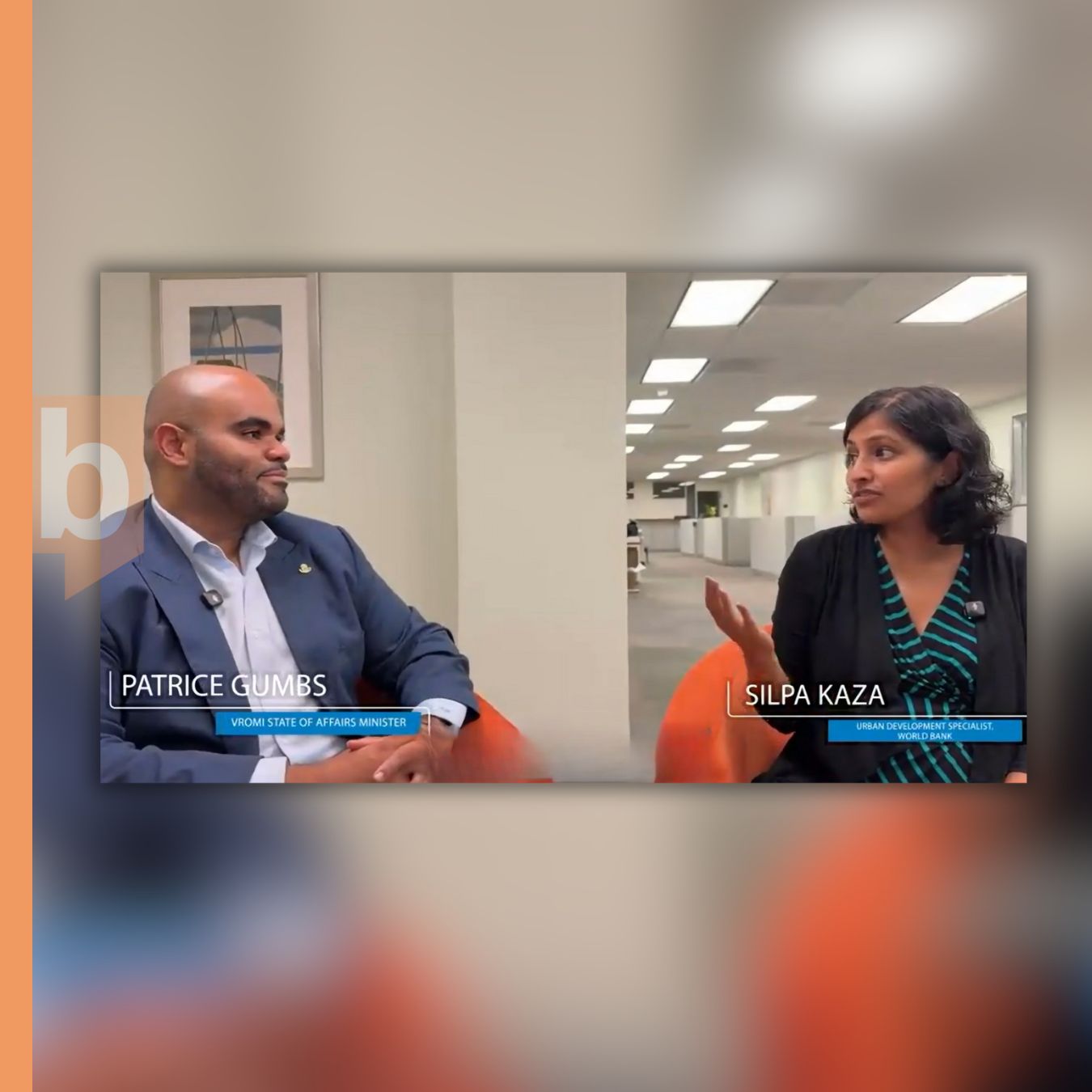VROMI Minister Gumbs highlights next steps for St. Maarten’s waste management transition

GREAT BAY--Minister of Public Housing, Spatial Planning, Environment, and Infrastructure (VROMI) Patrice Gumbs recently sat for a discussion with World Bank Urban Development Specialist Silpa Kaza, focusing on the next phase of St. Maarten’s waste management reform and the long-term vision for sustainable waste solutions on the island.
Minister Gumbs outlined that the immediate focus for the coming months will be on legal and financial reforms essential to building sustainability into the country’s waste management system. “The ministry’s next steps are about shaping a long-term transition. While the Emergency Debris Management Project (EDMP) addresses the landfill intervention, the broader goal is creating a sustainable waste future. That means investing in recycling, waste diversion, and planning for how we manage waste once the landfill is closed,” he said.
Addressing St. Maarten’s specific challenges as a small island vulnerable to natural disasters, Minister Gumbs stressed the importance of collaboration. “We share one island and must work closely with our French counterparts. Regional cooperation is also vital. When we create economies of scale, we attract more ideas, resources, and innovation,” he explained.
The minister also emphasized that sustainable waste management is a shared responsibility that depends on public involvement. “Waste is often seen as only a government problem, but it’s a collective one. How we dispose of waste affects our economy, our tourism product, our health, and our quality of life. Our slogan, ‘It Takes All of Us,’ reflects that truth. Without community engagement, buy-in, and cooperation, the project cannot succeed,” Gumbs stated.
Looking ahead, the Ministry of VROMI will roll out several pilot projects over the next few months aimed at improving waste diversion. “Our next major step is launching pilot programs focused on recycling and composting. These initiatives are critical as we prepare for the eventual closure of the landfill. The transition to a circular economy—where waste is viewed as a resource rather than a burden—is key to creating a sustainable system for the future,” Gumbs said.
The minister concluded that a sustainable waste strategy will not only protect the environment but also create new opportunities for innovation, community participation, and long-term resilience.
Join Our Community Today
Subscribe to our mailing list to be the first to receive
breaking news, updates, and more.





